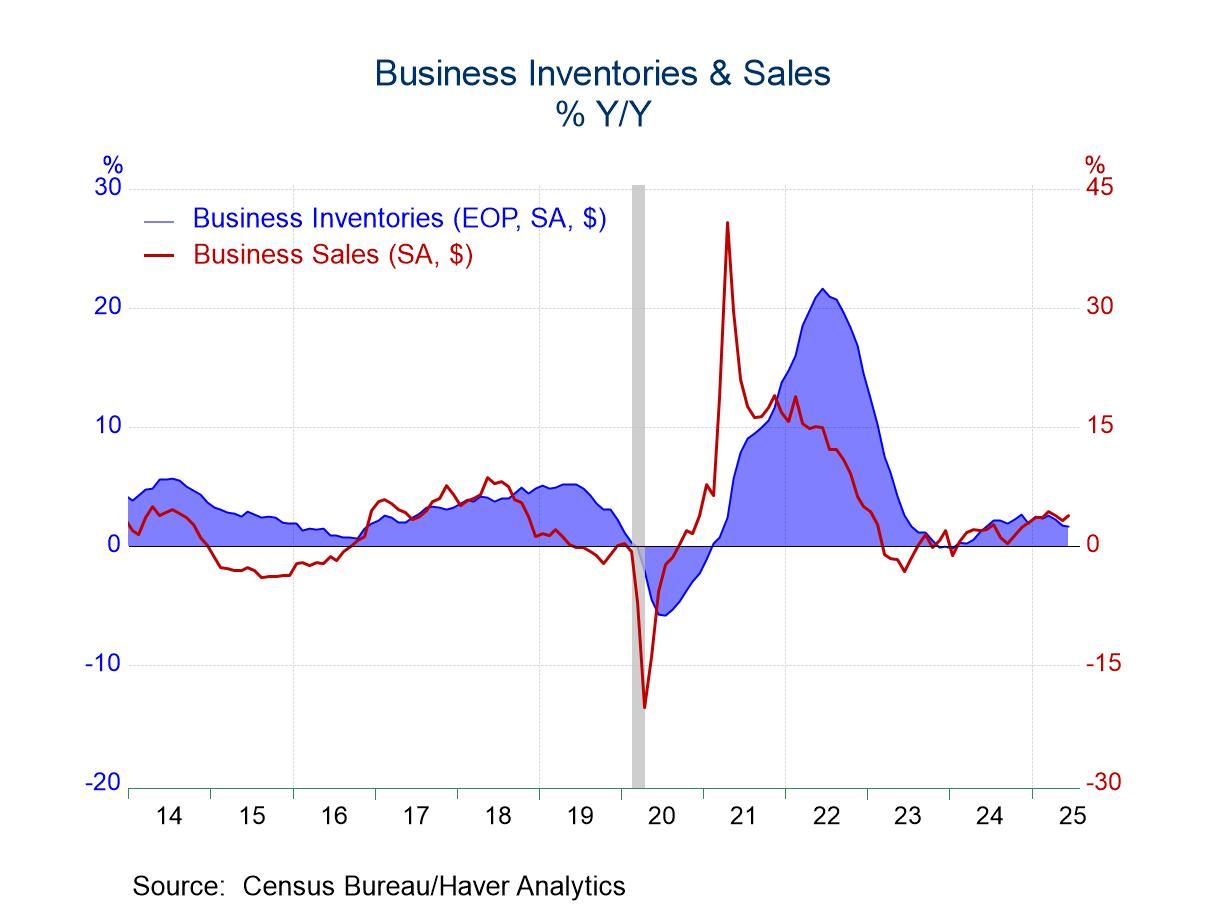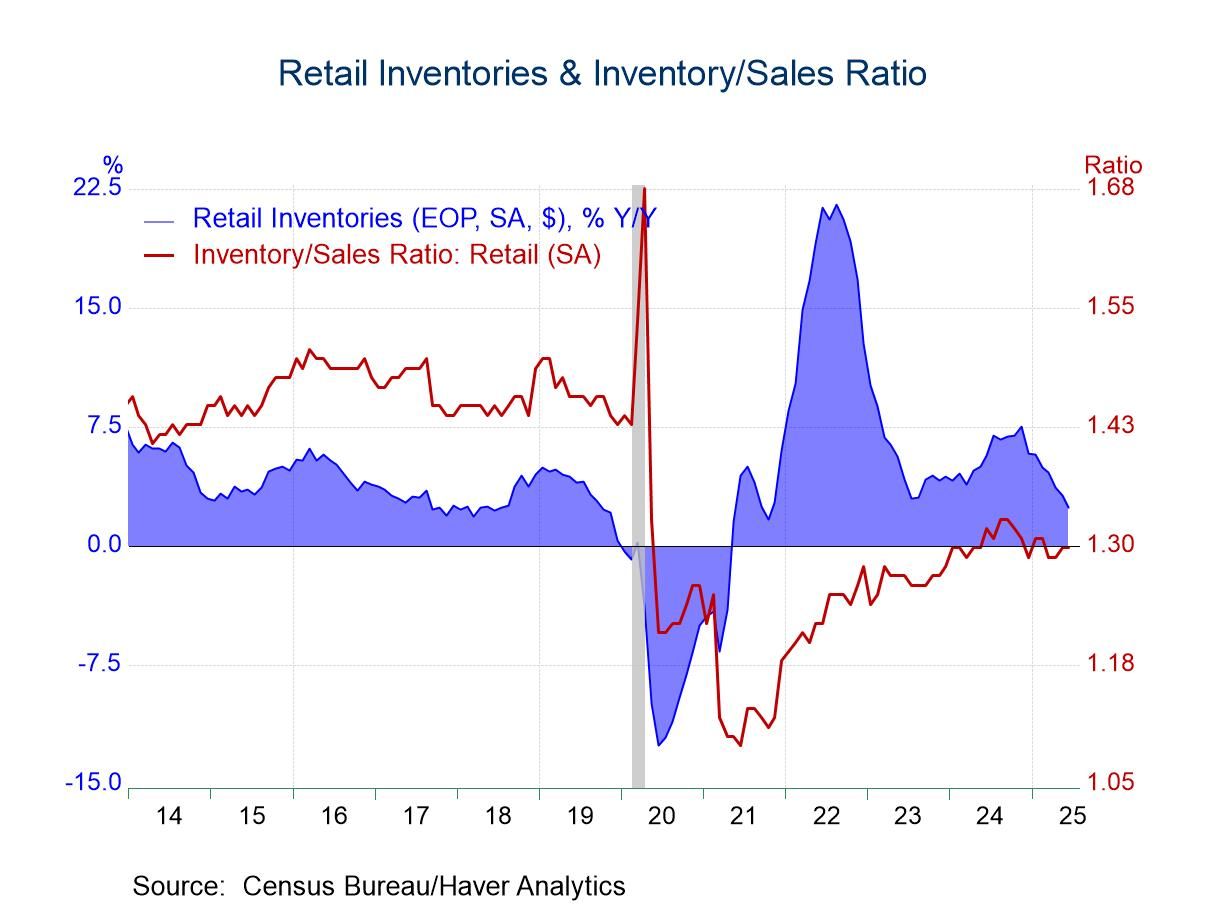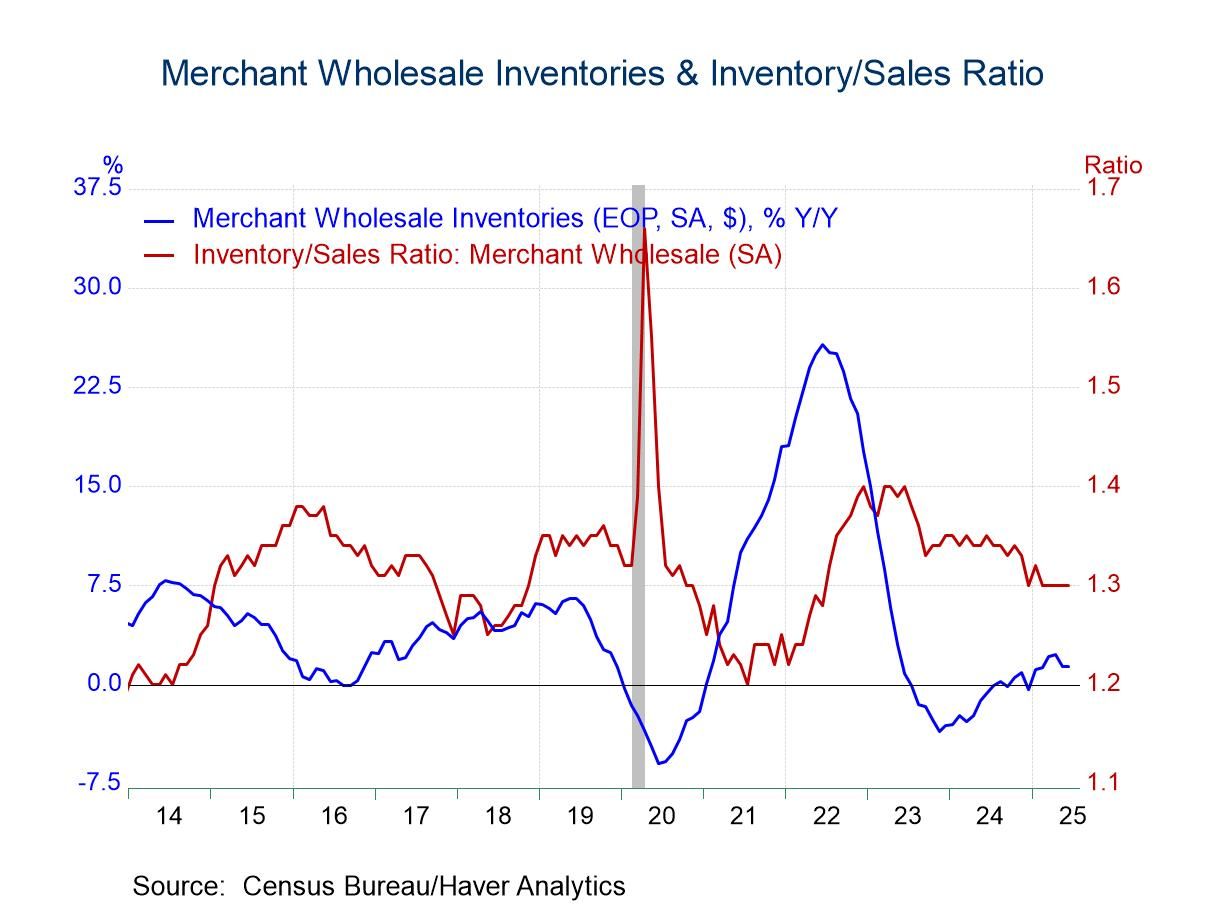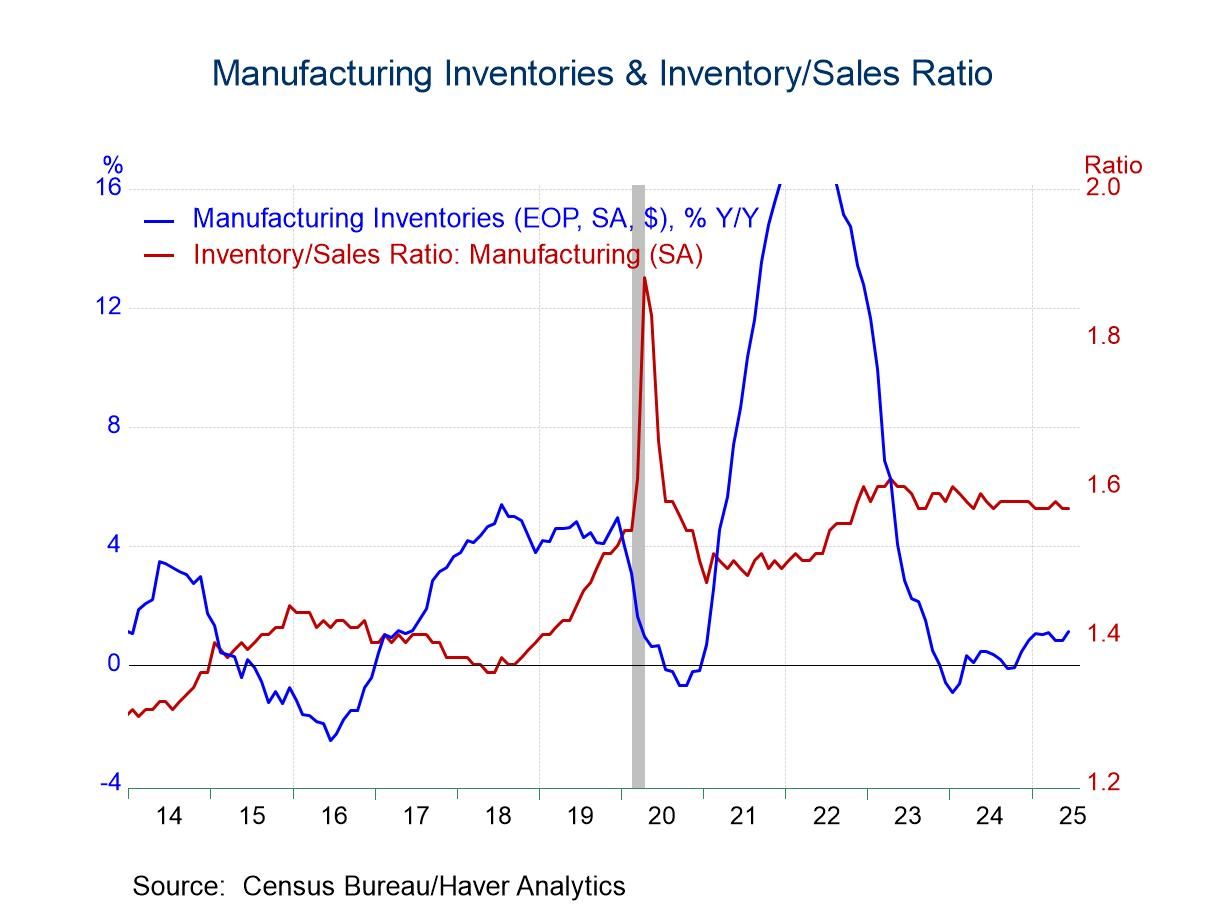U.S. Business Inventories Rise Modestly in June as Sales Increase
by:Tom Moeller
|in:Economy in Brief
Summary
- Inventory increase is first in three months & spread across sectors.
- Sales rise is led by retailers.
- I/S ratios are little changed.


Total business inventories increased 0.2% during June after holding steady in May and April. The y/y gain has decelerated to 1.6% from November’s 2.6%. Retail inventories rose 0.2% for the second straight month and the y/y increase fell to 2.4% from 7.5% in November.
Within the retail sector, auto inventories increased 1.0% (-1.0% y/y) after rising 0.6% in May. Retail inventories excluding autos edged 0.1% lower (4.1% y/y) and reversed the May increase. General merchandise store inventories fell 0.4% (+1.9% y/y), their third consecutive monthly decline. Food & beverage store inventories eased slightly (+4.0% y/y) and inventories at building materials & garden equipment stores rose 0.3% (6.7% y/y) after holding steady in May. Furniture & appliance store inventories increased 0.2% (1.8% y/y) following two months of strong increase. Clothing inventories rose 0.4% (1.5% y/y) and reversed the May decline.
Wholesale inventories edged 0.1% higher (1.3% y/y) in June following a 0.3% fall during May. Factory sector inventories rose 0.2% (1.1% y/y) following a 0.1% easing in May.
Total business sales increased 0.5% (3.8% y/y) during June, following a 0.4% May decline. Retail sales increased 0.9% (4.0% y/y) in June after falling 0.8% in May. Wholesale sales rose 0.3% (5.5% y/y) after a 0.4% decline in May. Factory sales rose 0.5% (1.8% y/y) on the heels of 0.2% gain.
The business sector inventory/sales (I/S) ratio eased to 1.38 in June from 1.39 in the previous month. The I/S ratios for retailers and wholesalers both held steady in June at 1.30, while the manufacturing I/S ratio was unchanged at 1.57.
The manufacturing and trade data are in Haver’s USECON database. The Action Economics Forecast Survey is in the AS1REPNA database.


Tom Moeller
AuthorMore in Author Profile »Prior to joining Haver Analytics in 2000, Mr. Moeller worked as the Economist at Chancellor Capital Management from 1985 to 1999. There, he developed comprehensive economic forecasts and interpreted economic data for equity and fixed income portfolio managers. Also at Chancellor, Mr. Moeller worked as an equity analyst and was responsible for researching and rating companies in the economically sensitive automobile and housing industries for investment in Chancellor’s equity portfolio. Prior to joining Chancellor, Mr. Moeller was an Economist at Citibank from 1979 to 1984. He also analyzed pricing behavior in the metals industry for the Council on Wage and Price Stability in Washington, D.C. In 1999, Mr. Moeller received the award for most accurate forecast from the Forecasters' Club of New York. From 1990 to 1992 he was President of the New York Association for Business Economists. Mr. Moeller earned an M.B.A. in Finance from Fordham University, where he graduated in 1987. He holds a Bachelor of Arts in Economics from George Washington University.
More Economy in Brief
 Global| Feb 05 2026
Global| Feb 05 2026Charts of the Week: Balanced Policy, Resilient Data and AI Narratives
by:Andrew Cates






